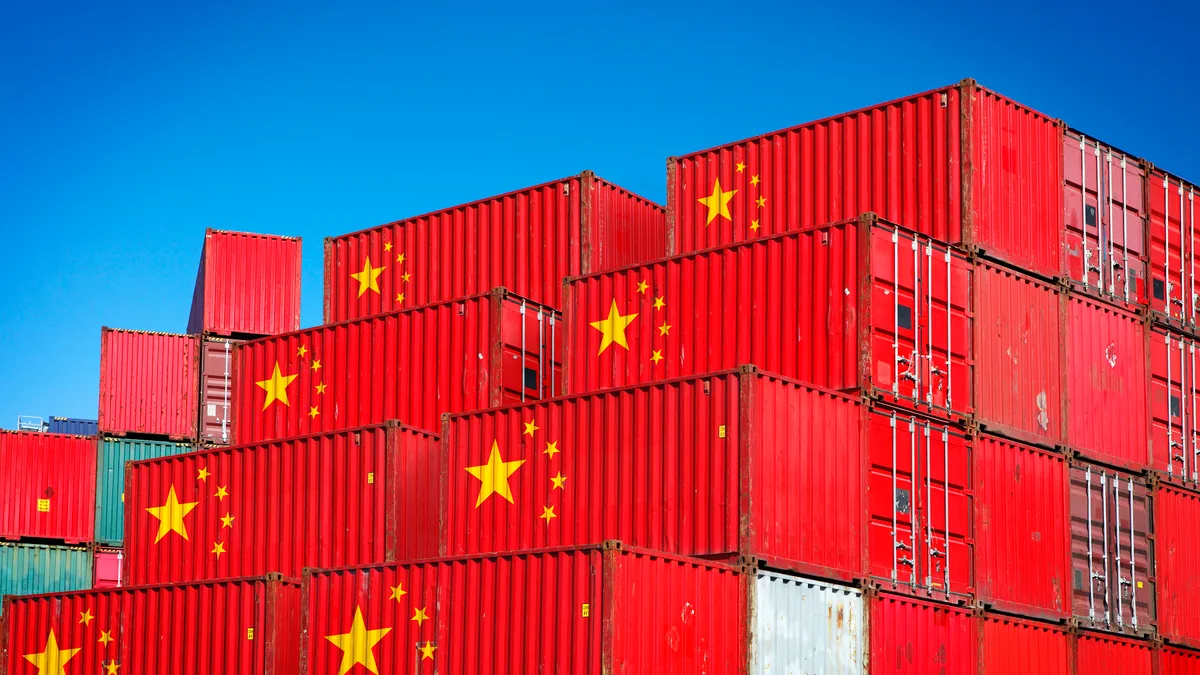UPDATE: Aug. 13, 2019: The United States Trade Representative has published the lists of product lines that will face 10% tariffs Sept. 1, known as list 4A, and Dec. 15, known as list 4B.
"We’re doing this for the Christmas season," Trump told reporters Tuesday afternoon, according to multiple news reports. "Just in case some of the tariffs would have an impact on U.S. customers."
Dive Brief:
- The United States Trade Representative (USTR) said it will delay 10% tariffs on "certain articles" from China, originally slated to take effect Sept. 1, to Dec. 15. These include cell phones, laptops, some toys and some footwear and clothing.
- USTR also said it plans to remove some products on the tariff list "based on health, safety, national security and other factors," but did not specify what these products are. The office said details on the product lines will be published later today.
- The remaining items on list four, covering $300 billion worth of imports from China, will still take effect Sept. 1, as President Donald Trump announced in a series of tweets at the beginning of the month.
Dive Insight:
The notice from USTR confirms Trump's announcement from two weeks ago, but with a few caveats. Some electronics, apparel and footwear will not face tariffs until December. Further information scheduled to be released today should offer additional clarity on which exact product lines those are.
The 10% tariffs are particularly problematic due to their timing, coinciding with the start of peak season. Many importers are bringing in goods now for the holiday season. The Aug. 1 tariff announcement sent many West Coast importers into rush mode, in hopes the goods would arrive ahead of Sept. 1, Lori Fox, VP of Customs Brokerage Services at American Global Logistics, previously told Supply Chain Dive.
An extension to Dec. 15 for certain items mitigates some of the risk with peak season, but it may be too late for supply chains that initiated a rush soon after the Aug. 1 announcement.
The tranche four tariffs, in particular, garnered significant attention from the public and media due to the vast number of consumer-facing goods on the list. Many of the items slated for delayed tariffs appear to be consumer-facing goods.
As with other rounds of tariffs, USTR said it will conduct an exclusion process, whereby companies can submit requests for exclusions on particular products.















